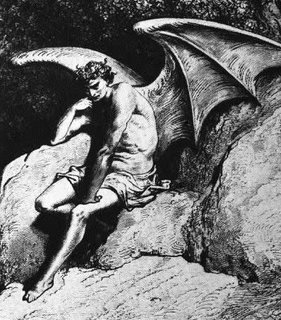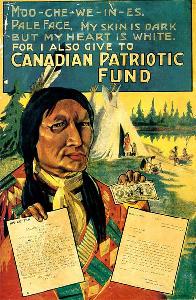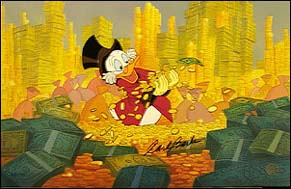 From Monthly Review Press an excerpt from their new book;Marxism and Religion
From Monthly Review Press an excerpt from their new book;Marxism and Religion
Prometheus played a crucial role in Marxs original thesis on philosophy and religion.
Prometheus as I have discussed here also relates to Lucifer.
Uh oh I can see those right wing Christian conspiracy nutbars figuring that this means Marxism=Satanism. Oh wait they already do.
I think they may be confusing Marx with Bakunin who also embraced Prometheus as the ideal of human liberation as he did Satan.
"But here steps in Satan, the eternal rebel, the first free-thinker and emancipator of worlds. He makes man ashamed of his bestial ignorance and obedience; he emancipates him, stamps upon his brow the seal of liberty and humanity, in urging him to disobey and eat of the fruit of knowledge." [God and the State]Of course the right wing Christian zealots hate the Englightenment and thus all enlightenment thinkers, who are classical liberals. Which is why it is hard to understand how right thinking libertarians can have anything to do with them.
The Enlgightenment is the creation of a Satanic/Luciferian cult according to Christian conspiracy nuts. Which cult, why Freemasonry of course. The Brotherhood of Man is not the Brotherhood of God. It is the begining of the liberation of man from God.
It is this liberation that Marx and Bakunin both embraced Prometheus as an icon; not as a god but as a liberator of men from the gods. In that Marxism and Anarchism are logical extensions of classical liberalism, as is modern libertarianism.
Marxism and ReligionThe Prometheus of Marx's doctoral thesis appears profoundly Feuerbachian, as does the fuzziness of the boundary drawn there between human and divine. Well versed though he was in Greek mythology -- knowing that Prometheus, born of gods and titans, had to be a god -- Marx nonetheless assigned him human status: "noblest of saints and martyrs in the calendar of philosophy." Whence came this divine aspiration attributed to the human species? Was it inherent in the cosmos? Had Feuerbach simply substituted a Spinozean pantheism for Christianity's orthodox theism? And did Marx and Engels concur? They soon distanced themselves from Feuerbach, yet they would not hesitate to impose on proletarians the god-like tasks of Prometheus. Despite these ambivalences of concept and explanation, Marx and Engels remained nonbelievers and foes of institutionalized religion. This heritage from the Left Enlightenment they powerfully transmitted to their followers thus helping to ensure that through the next century and a half Marxist parties would serve as prime targets for religion's multitudinous defenders. At the same time -- more than any other nineteenth-century tendency of radical anti-capitalism -- Marxism remained open to labor unionism and working-class politics. Marxist activists proved influential leaders in both these enterprises. It may not be irrelevant, therefore, to ask how successful they were in pursuing the party line on religion and whether it proved an asset or hindrance in organizing workers, nor to inquire why Marx and Engels themselves had chosen to make criticism of religion the "premise" for their project in revolutionary political economy. Such questions may seem more pertinent to our own times than to those in which Marx and Engels actually lived. Any investigation of their stance toward religion must begin by noting that their careers fell within the opening century of the Age of Secularism. Nonbelief, for the first time in more than fifteen hundred years was becoming intellectually -- even to some extent socially -- tolerable.
Orthodox religionists, Protestant or Catholic, still controlled most major institutions such as city and state governments and universities throughout western Europe, yet they faced increasingly articulate resistance from educated opponents among the upper classes. Thus, for example, when John Stuart Mill in England declared that the "whole of the prevalent metaphysics of the present century" constitutes a "tissue of suborned evidence in favor of religion," he was saying approximately what Marx and Engels were saying, and targeting the same German idealist metaphysics they were rebelling against. While for Mill the main enemy was Kant, it was of course Hegel for Marx and Engels. Different though the systems of these philosophers were, it would not be inaccurate to describe both as idealist constructions designed to protect religion. To protect it against what? Against the oncoming Era of Secularism: against the rise of skeptical rationalism; against cumulative disillusionments attached to the memory of religious wars that had raged across Europe for almost two hundred years; against the encroachments of empirical science into orthodox belief. Marx and Engels in all these controversial areas stood on solid ground to the extent that their peers in class status and education were likely to remain tolerant toward criticisms of religion that many of them already shared. Yet obviously no such immunity would attach to radical criticisms of class hierarchy.
From Feuerbach to the Manifesto
The Hegelian dialectic in a broad sense had idealized the cosmos as an ongoing spiritual process. More narrowly, that portion of it that paralleled human history could be analogized to Christian doctrine. God's decision to create a world populated by creatures (including humans) established the antithesis. Conflict stemmed from the willed act of human creatures to use their God-given liberty for rebellion against the creator. Resolution, after many turns of the dialectic, must await the advent of Christ, begotten out of mortal flesh by divine spirit, and thus providing the synthesis within which the opposites -- mortal and divine, creator and created -- will at last be rejoined. According to the famous legend, Marx had arrived at his class interpretation of human history by an intellectual tour de force, that is, by translating Hegel's idealist dialectic into a materialist one. Thus, instead of pushing the narrative through a sequence of metaphysical abstractions, the dialectic would now be made to convey human class struggles in the language of historical realism.
A full-dress presentation of the materialist dialectic occurs in the Communist Manifesto (1848). There are some baffling conceptual problems about this transformation, of which I will mention (at this point) only one. If history comprises a series of struggles in which exploited (therefore antithetical) classes overpower one another to establish each in turn its own dominance, there would seem no possible escape from this repetition unless a class formation occurred that somehow had the power (or lack of power!) to break out of the circle. Recalling the original model -- that is, the Hegelian dialectic that symbolically enacted the Christian story -- it is obvious the crucial role belonged to Christ, who by his sacrificial death terminates the long chain of contradictions between creator and created. Yet when the idealist dialectic is turned upside down and all the actors become "real, active men, as they are conditioned by a definite development of their productive forces," what sort of class formation could be expected to play a comparable role? "The idea --fundamental for Marx from then on," writes the Marxist historian, Eric Hobsbawm, "that the proletariat was a class which could not liberate itself without thereby liberating society as a whole, first appears as 'a philosophical deduction rather than a product of observation.' . . . [Thus] 'the proletariat makes its first appearance in Marx's writings as the social force needed to realize the aims of German philosophy.'" Needed, that is, to materialize the idealized figure of Prometheus.
Also see:
Judas the Obscure
For a Ruthless Criticism of Everything Existing
Antinominalist Anarchism
Find blog posts, photos, events and more off-site about:
religion, enlightenement, Lucifer, Prometheus, Christianity, Fuerbach, Marx, Engels, Rothbard, libertarian, Christians, Bakunin, Satan, Freemasonry, cults, conspiracy, conspiracy-theories, social-conservatives







